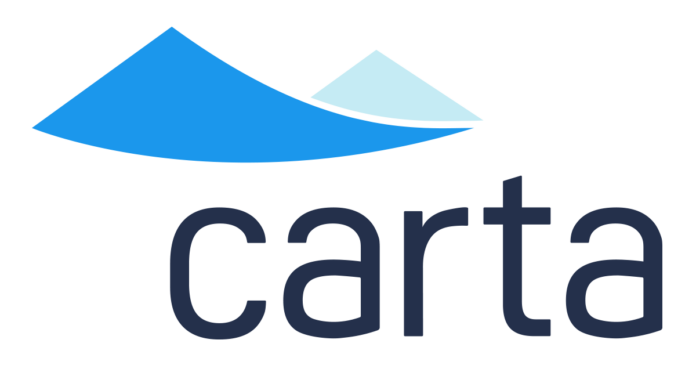Fundadores e Inversores
Después de que un destacado cliente se quejara de que Carta estaba haciendo un mal uso de la información que se le había confiado, asustando a muchas de las decenas de miles de otros clientes de Carta en el proceso, Carta está saliendo del negocio que le causó problemas con el cliente.
El cofundador y director ejecutivo de Carta, Henry Ward, publicó en Medium hace poco que: “Debido a que tenemos los datos, si comercializamos secundarios, la gente siempre se preocupará de que estemos usando los datos, incluso si no lo hacemos. Por eso hemos decidido priorizar la confianza y salir del negocio comercial secundario”.
Es un giro dramático de los acontecimientos para Carta, que originalmente se centró en el software de gestión de tablas de capitalización, pero con el tiempo comenzó a evolucionar hasta convertirse en un «mercado de valores privado para empresas» para aprovechar la red de empresas e inversores que ya utilizan su plataforma y en la que tiene ideas. La gran idea era convertirse en el agente de transferencias, corretaje y cámara de compensación para todas las transacciones de acciones privadas en el mundo.
Si bien la medida hizo que Carta fuera más valiosa a los ojos de sus patrocinadores de riesgo, ¡después de todo, una empresa tiene que escalar! – puso a Carta en una posición peligrosa después de que un CEO finlandés, Karri Saarinen, publicara en LinkedIn que Carta estaba usando información sobre la base de inversores de su empresa para intentar vender sus acciones a compradores externos sin el conocimiento o consentimiento de la empresa.
Escribió Saarinen, cuya empresa de software de gestión de proyectos Lineal tiene cuatro años y es cliente de Carta: “Como fundador, me sentó fatal que Carta, en quien confío para administrar nuestra tabla de capitalización, esté ahora contactando en frío a nuestros inversionistas para venderles acciones de Linear a sus compradores sin revelarlos”. Saarinen continuó: “Nunca se comunicaron con nosotros (su cliente) para iniciar una cartera de pedidos para acciones de Linear. El inversor con el que se pusieron en contacto es un miembro de la familia cuya inversión nunca publicamos en ninguna parte. Nosotros y ellos nunca optamos por ningún tipo de ventas secundarias. Sin embargo, Carta Liquidity encontró su correo electrónico y supo que poseían acciones de Linear”.
Mientras Ward se disculpaba públicamente con Saarinen, culpando a un empleado deshonesto que «violó nuestros procedimientos internos y se salió de los límites para llegar a clientes que no debían», Saarinen continuó la discusión de manera muy pública, diciendo que había identificado a muchos otros fundadores cuyos inversores habían también habían sido contactados por representantes de Carta sin su conocimiento.
En su última publicación, Ward minimizó los impactos de poner fin al comercio secundario en Carta, diciendo que los ingresos derivados de la práctica son minúsculos en comparación con otras ofertas comerciales de Carta. Según Ward, el negocio de la mesa de capitalización de Carta «es de unos 250 millones de dólares al año, la administración de fondos es de unos 100 millones de dólares, el capital privado es de unos 20 millones de dólares y el negocio de negociación secundaria es de unos 3 millones de dólares. Carta, añadió, ha hecho un «trabajo decente en la construcción del negocio de mesa de capitalización, un buen trabajo en la administración de fondos (pero sintiendo los dolores de crecimiento) y un trabajo abismal en el negocio secundario».
Además, continuó, tener datos valiosos de los clientes que otros no tienen no es el superpoder que los demás pueden pensar; ciertamente no si Carta va a ser un buen actor en el ecosistema de la empresa privada.
Con un tono humilde, Ward escribió que “TODAS mis ideas sobre la liquidez (subastas, emparejamiento de inversores, negociación secundaria, ofertas públicas de adquisición) no han funcionado. Puede que no sea el empresario que pueda resolver este problema”. De hecho, continuó, “Carta podría no ser la empresa que puede solucionar este problema. Mucha gente piensa que estamos en mejor posición para resolver la liquidez porque tenemos datos de la tabla de límites máximos. Pero ese mismo argumento se utiliza para los productos de datos. La gente dice: ‘¡Tienes todos los datos, así que deberías cerrar Pitchbook!’ Pero es precisamente porque tenemos los datos, que no podemos usarlos. Son los datos de nuestros clientes, no los nuestros. Es por eso que en diez años, Carta nunca ha lanzado un producto de datos. Utilizo Pitchbook cuando investigo una empresa antes de reunirme con el director ejecutivo”.
“Tener datos reales sobre el terreno no es una ventaja si no podemos utilizarlos. Y es una desventaja si la gente piensa que lo usamos”, añadió Ward.
Para crédito de Carta, la decisión de retirarse del negocio de ventas secundarias llegó rápidamente; Carta también parecía tener pocas opciones, ya que muchos fundadores amenazaron con trasladar el negocio de sus nuevas empresas a otra parte después de los acontecimientos acaecidos.
Como escribió en LinkedIn el fundador Sim Desai de la startup de servicios financieros Hiive, Carta aparentemente abusó de la confianza de Linear (posible de arreglar) y su falta de experiencia (difícil de arreglar), Carta enfrenta otro conflicto imposible entre estos dos modelos de negocios. Incluso si no utilizan la información confidencial de sus clientes, lo que se interpondrá en el camino es la óptica de una posible infracción”.
Queda por ver cómo la medida afectará la propia valoración de Carta.

